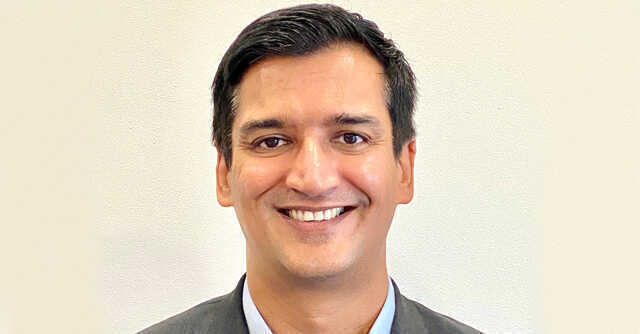
Aftermath of the Pandemic: Are we Future-Ready?


Two years into the worst pandemic of our times, transitioning into lifestyles defined by mask mandates, lockdowns, and social distancing, we ask ourselves – how, and when, will the pandemic end? With Omicron pushing Covid-19 numbers to a new surge, the answer to when the pandemic will end is far from close. What we can try answering, though, is “how” the pandemic will end. The solution is composed of many threads. From an inclusive healthcare infrastructure to building resilient public-private partnerships, investing in R&D to build the healthcare systems of the future to empowering our workforces – we are standing at a confluence that will redefine the future.
The Solution with Numbers: The Economic Survey, 2020-21 recommended that we need to raise the spend on healthcare services from 1% to 2.5-3% of GDP, to “reduce the Out-of-Pocket-Expenditure (OOPE) from 65% to 35% of the overall healthcare spend.” Moreover, we stand at 179th position out of 189 countries when it comes to prioritisation of health in its government budgets (consolidated union & state government). We know how the limited budget on healthcare left little fiscal room for powering the primary healthcare centres, especially in rural India. From hospital beds to oxygen cylinders, the struggle cost us many lives. To be prepared for the future, we must build a resilient healthcare system.
Future-ready healthcare professionals: The pandemic brought to fore, the underlying threat of non-communicable diseases, where 1 in 4 Indians is at risk of dying from an NCD before 70 years of age, i.e., nearly 5.8 million people at risk every year.

We can build a system that does not crumble in the face of a pandemic, ensuring healthcare access to all, by taking concrete steps like investing two-thirds or more of government’s health spending on public healthcare, as proposed in the National Health Policy (NHP) 2017. Ayushman Bharat’s aim to update and make 150,000 Government Primary Health Care Facilities (existing) operational by December 2022 would provide much-needed momentum to our healthcare systems.
However, it is important to understand that healthcare infrastructure is not about hospitals alone but also, medical colleges and trained staff who can adequately address the doctor-patient ratio in the country. As per studies, the year 2020 saw a rise in the number of registered doctors over 1.2 million (with the Indian Medical Council), however, future readiness needs committed investments through PPP in upskilling and training healthcare professionals to adequately understand and address the patient needs.
Turning to Technology for Answers: Today, we have AI-powered intelligence platforms that enable improved patient outcomes by integrating and assimilating data from various sources and using advanced algorithms for deeper insights into a patient’s health journey. Advanced innovations and precision medicine will steer the future of healthcare through better accessibility, affordability, and capacity building to deliver quality care.

Building Resilience with Partnerships: Covid-19 drew attention to the significance of public-private partnerships to build a resilient ecosystem. Collaboration between the government and MedTech organizations will be critical towards crises preparedness and emergency response as well as building a financial model to encourage scientific research and development.
The collaboration model’s success will also be defined by the kind of investment we promise to the sector. For instance, diagnostics, which are key to identifying a disease, remain unaffordable and inaccessible to millions in India. We are expecting the diagnostics market to grow at a CAGR of 20.4% to reach $32 billion (by this year) from $5 billion in 2012. To empower this market share, R&D investment is key as it will open the doors to newer innovations, bringing solutions that improve patient outcomes and prepare us for the future.
Walking into the Future: As we look at the future of healthcare, being the fastest growing economy in the world, with the healthcare sector poised for growth, India must look at an evolutionary trajectory. It’s time to look at solutions that will promise results - drawing focus on preventive care, investing in precision health; raising the bar for primary healthcare centres, scaling up programmes to address the threat posed by NCDs, prioritising women’s health and reshaping the healthcare paradigm with partnerships that matter.


Dr Shravan Subramanyam
Dr. Shravan Subramanyam is Managing Director at Wipro GE Healthcare.
